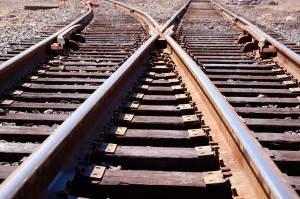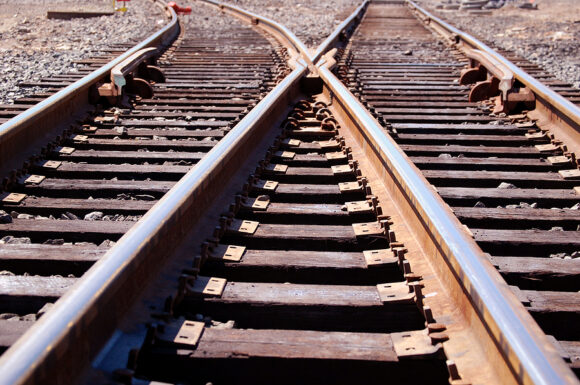Illinois congressmen want federal watchdog agencies to ensure railroad companies are conducting frequent track inspections to prevent rail derailments resulting from heat-related track buckling, after this month’s deadly suburban Chicago accident.
U.S. Sens. Dick Durbin and Mark Kirk said at a Sunday news conference that they’ve sent a letter asking the Association of American Railroads to conduct a comprehensive review of the railroad industry’s practices regarding the phenomenon known as track “sun kinks” and to make the findings available to the public.
“We want to make sure the trains moving freight and chemicals and hazardous waste, whatever it may be, are moving safely near and through our communities,” the Illinois Democrats said Sunday near a stretch of train tracks in downtown Chicago.
Durbin’s remarks come as investigators continue to examine the cause of a July 4 train derailment that killed Glenview couple Burton and Zorine Lindner. A Union Pacific freight train derailed and caused a suburban Chicago railroad bridge to collapse, sending train cars crashing onto the couple’s car.
The triple-digit temperature that day may have caused a rail to expand, leading to the derailment, Union Pacific officials have said.
According to Durbin, sun kinks are believed to have caused three other train derailments in Texas, Washington state and Wyoming. When coupled with the Glenview incident, they caused $5 million in property damage.
Tracks are built on land owned, maintained and inspected by the railroad companies, and there is no state agency that oversees their inspection activity, Durbin said. He added that there are no requirements for local notifications.
On June 16, the Federal Railroad Administration issued a safety advisory to draw rail owners’ attention to the consequences of an unexpected track buckle in extreme heat.
Railroads are the backbone of Illinois’ economy and passengers should be able to travel on them safely across the country, Durbin said.
About 500 freight trains carrying 631 million tons of cargo move through the Chicago area each day.
Was this article valuable?
Here are more articles you may enjoy.


 Elon Musk Alone Can’t Explain Tesla’s Owner Exodus
Elon Musk Alone Can’t Explain Tesla’s Owner Exodus  LA County Told to Pause $4B in Abuse Payouts as DA Probes Fraud Claims
LA County Told to Pause $4B in Abuse Payouts as DA Probes Fraud Claims  FM Using AI to Elevate Claims to Deliver More Than Just Cost Savings
FM Using AI to Elevate Claims to Deliver More Than Just Cost Savings  Hackers Hit Sensitive Targets in 37 Nations in Spying Plot
Hackers Hit Sensitive Targets in 37 Nations in Spying Plot 